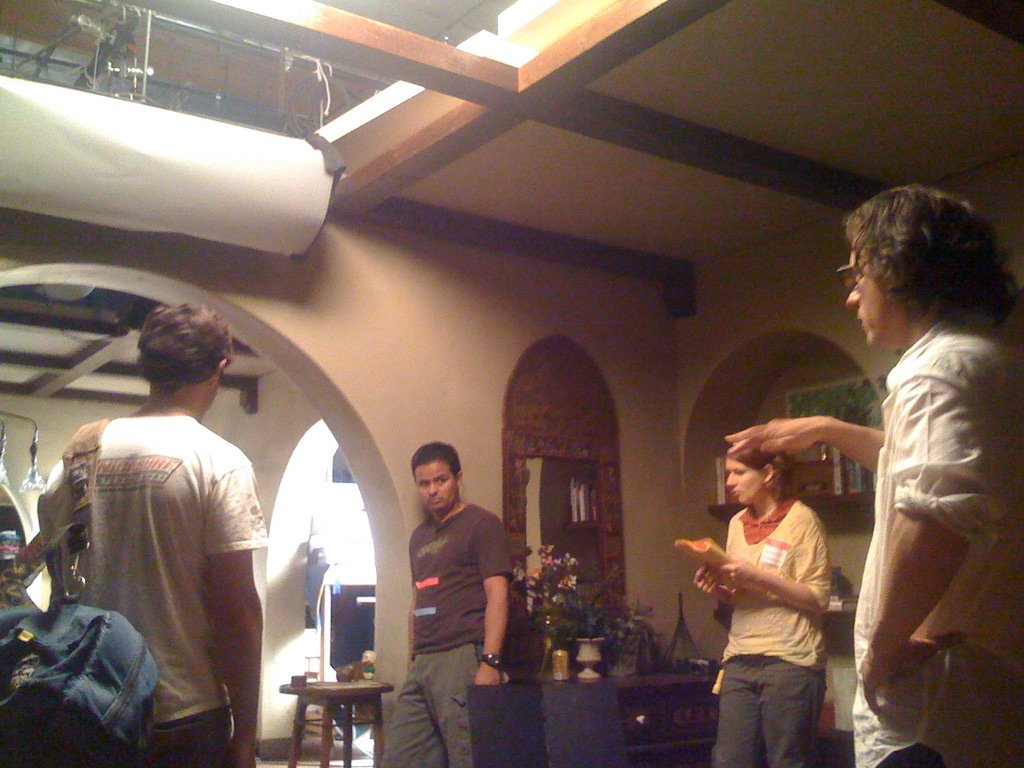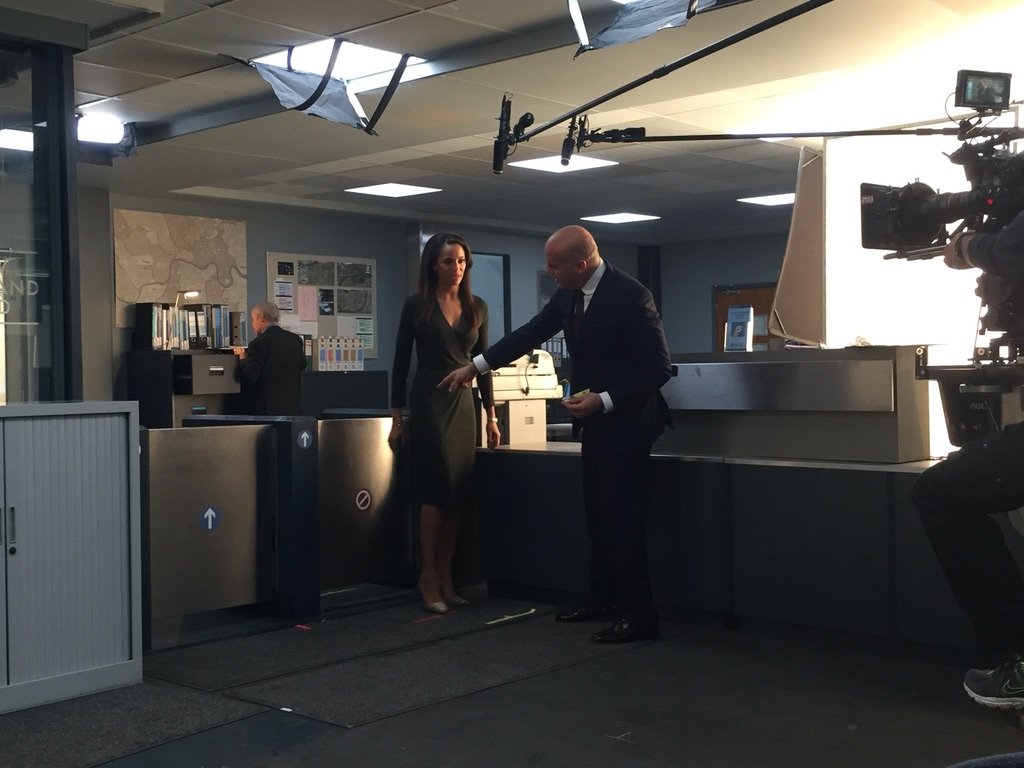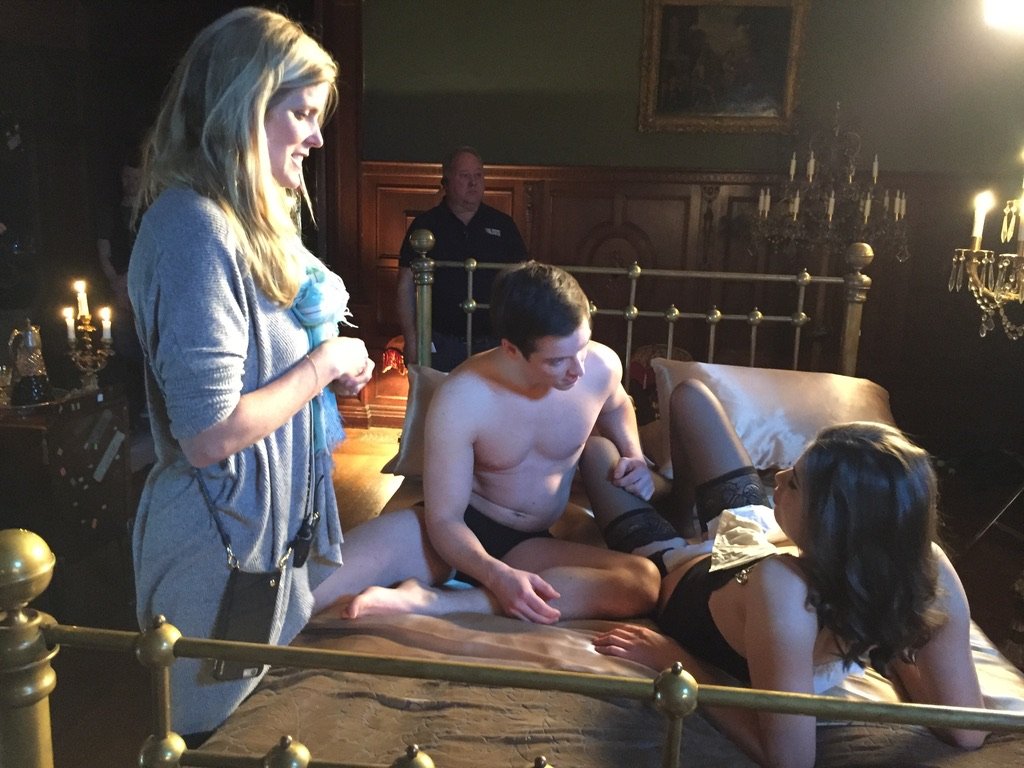TV DIRECTING 101
This 4 week class will explore the craft and process of directing for scripted drama television. Learn the creative and practical aspects of directing a television episode, from getting the gig, to analyzing the script you’re slated to shoot, guiding you through prep, the shoot, and pot-production. Hand-outs include a script, shooting schedule, concept art, prep memo, one-liner, call sheet, and director cut continuity.
Sunday Jan. 12th - Feb. 9th 2025
10:30am-12:30pm
SYLLABUS
WEEK ONE - THE JOB
The responsibilities of a tv director
Analyzing the script
Prepping the episode
Shooting the show
Staying on budget and on time
Editing your director’s cut
Getting the gig
Prior film or short film
Agent or manager
Watching episodes
Relationship with studio or network
Relationship with showrunner
Meetings and more meetings
Analyzing the script
Reading and rereading
Flagging any major story concerns
Understanding character motivations
Brainstorming ideas
Prepare your questions
WEEK TWO - PREP
Day One
Meeting your team
Bonding with your 1st AD
The concept meeting
The art of listening
The art of asking questions
Sharing vague ideas
Meet the showrunner
A quick hello
Showering compliments
Asking creative questions
Understanding expectations
Prep meetings
Concept
First tone, second tone
Art department
Wardbrobe
Stunts
VFX
SFX
The location scout
Bonding with department heads
Keep an open mind
Don’t be rushed
Don’t settle
Spend time on each set
Alone and with 1st AD
Come up with blocking and shot ideas
What’s the best angle?
What hasn’t been shot before?
Shot-listing
Fun time, alone time
Matching style of show
Coverage is key. Master, medium, close-up - at least.
Complicated means time. Budget accordingly.
Storyboarding doesn’t need an art degree
Meet the series regulars
Five minute meet and greets
Compliments are your best friend
Prepare them for intimacy or stunts
Meet the DP
Your biggest ally
Take them to lunch or dinner
Pick their brain. They know the visual approach better than anyone.
Go over any tricky shot ideas
Agreeing to a board you can shoot
Trust your 1st AD but trust yourself more
How long does the scene take to shoot?
Dealing with script changes
Nothing is set in stone
Prepare to pivot
No shot is preciou
WEEK THREE - THE SHOOT
Get to set early everyday
Time alone is time to go over your plan
Learn every crew member’s first name
Positive aura with everything you do
Thank you’s are your best friend
Give shot-list to 1st AD, DP and script supervisor
Speech on day one expressing your gratitude and excitement
Blocking the scene
Have actors read it through once
Express your blocking plan in a vague way, let actors create
Stand where you think the camera will be
Explain your plan in more detail, adjust accordingly
Listen to their issues
Explain WHY you want it your way
Compromise if need be. You’re here to collaborate.
Patience while lighting
Play music? Depends on vibe
Get to know script supervisor and other crew
Never leave set except to go to bathroom
Be near monitor to respond to DP framing questions
Giving notes to actors
Short, succinct and specific. Don’t over-explain.
Actors like external behavior notes. Avoid adjectives if possible
Compliment but don’t over-compliment when it’s not good
Every actor is different. Learn what they like.
Three, four takes max, unless there’s a big issue
Take a nap at lunch if you can
Your trailer is your sanctuary
Unwind time is vital
End of every day
Thank everyone on set. Even the P.A.
Order coffee truck one day to show gratitude
Make speech on last day expressing your love
WEEK FOUR - POST PRODUCTION
Take time off right after shoot
Try not to think about shoot
Don’t watch the show
Clear your mind to keep it fresh
The editor’s cut
Be complimentary
Keep an open mind
Be open to new ideas
They often know the show better than you
Working with your editor
You’re in charge. It’s your episode
Disagreeing is okay.
Don’t worry about hurting feelings
Never snap or clap suggesting a cut
Music ideas? Use them. Talk to music supervisor if song is realistic.
Treat editor and post staff to coffee
Emails to crew and cast
After seeing cut, compliment those who deserve it
Keep spreading positivity
You did it! Congratulations!







